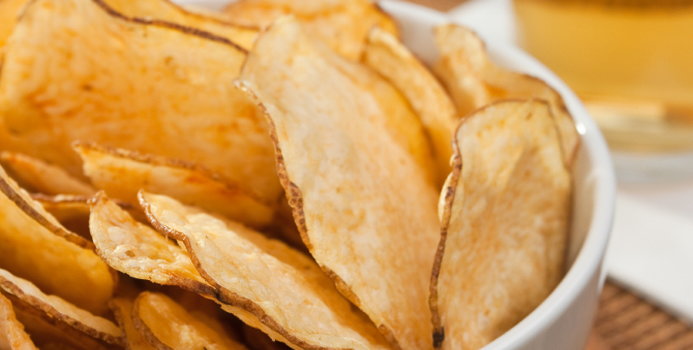They're a staple in the diets of so many people, but what's actually in potatoes? In accordance with their global popularity, potatoes deserve a look at the nutrition collected in this root plant, which discriminating dieters point out is not technically a "green vegetable," but a "starch." The versatile potato has many different uses. In its natural form, baked or boiled, the potato has some nutrition without a lot of additional fats and sugars, or other unwanted items like cholesterol.
Calories
To look at the actual caloric value of a potato, take a "regular" serving size: one potato of about 300 grams, baked, including both the skin of the potato and what's inside. This serving comes to about 300 calories, or 1 calorie per gram. Although that's a bit above many of the green vegetables, it's not a terrible number, but it does give pause to some considering the common idea of adding a potato as a "side" to a meal. In fact, lots of the information that food shoppers dig up on potatoes points in the same direction, toward the realization that there are lots of more nutritious sides than the french fries that always seem to show up on your restaurant plate.
Protein and Fiber
Potatoes aren't a bad source of protein, with 7 g in the same serving. They also have 7 g of dietary fiber, and only 4 g of natural sugars. The serving size also contains 30 mg of sodium, not an unusually high amount, but be warned: that figure is for unsalted potatoes, and eating them as french fries or other processed forms can raise the sodium level quite a lot.
Another big statistic is the 63 g of carbohydrates in that same serving of potatoes. This is where the downside of the "starch" label comes in; a lot of the calories in the potato are carbs, which is why some dieters try to cut down on this "starchy white" food.
Vitamins
Potatoes are also a source of some of the antioxidants and essential vitamins and minerals that keep our nervous systems and our bodies working well. You get some of almost everything in potatoes, including vitamins C and B6, a bit of vitamins E and K, and stuff like thiamin and riboflavin that's crucial to keeping the body supplied with chemicals that it needs for healthy development and "maintenance."
The bottom line is that although potatoes may have natural nutritional elements, they're not the best for your overall diet plan, especially when they are processed and served fried or with added salt, butter, sour cream, etc. Think about the ways they eat potatoes and how you might adjust your diet to get more of the good stuff without unwanted additional calories, fats or sodium.



